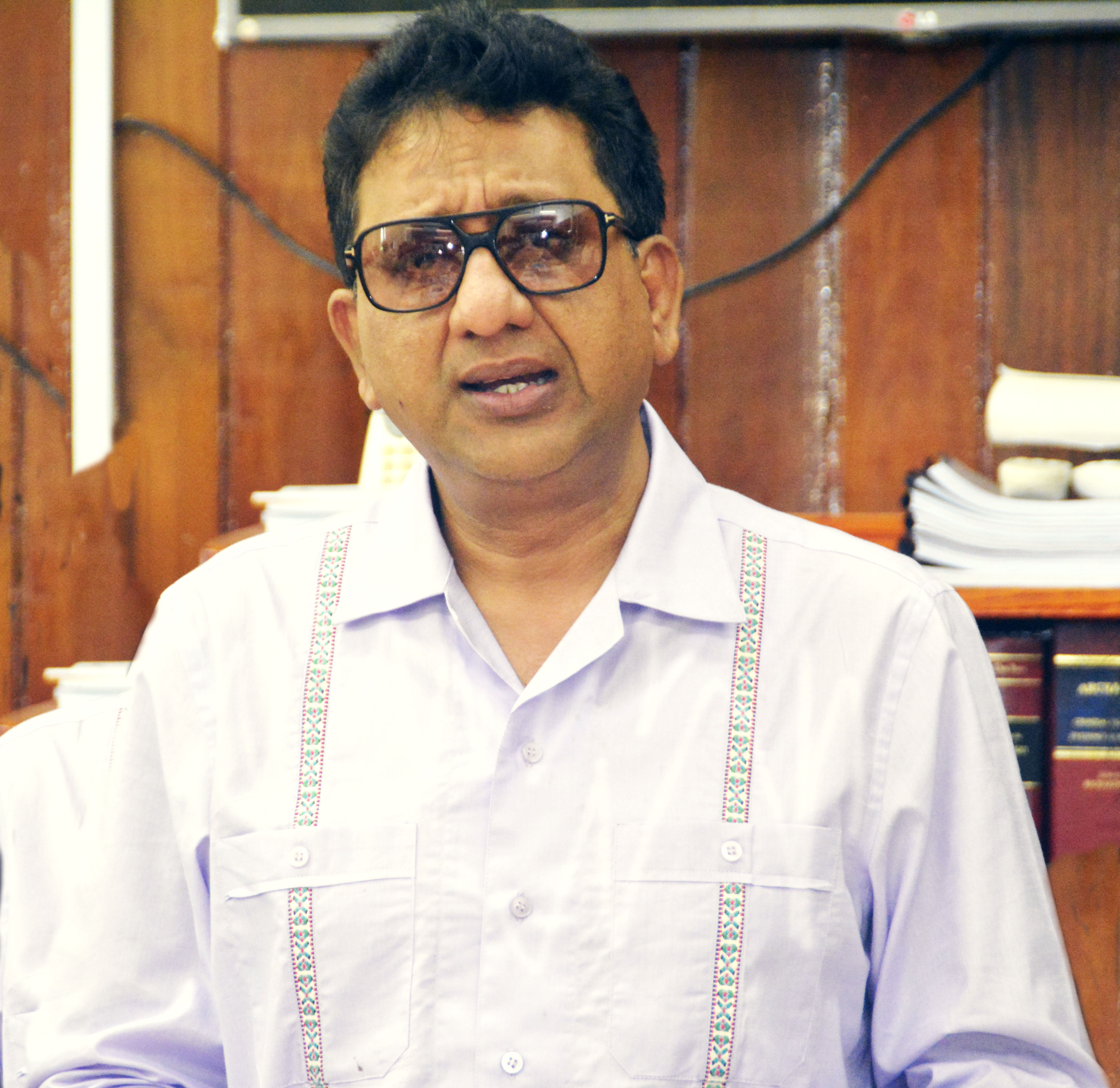Attorney-General plans to mobilise more international support amidst Venezuela’s aggression
- Home
- News

Attorney-General plans to mobilise more international support amidst Venezuela’s aggression
By Staff Reporter
- April 5, 2024
–by writing various parliaments to condemn Bolivarian Republic’s actions
IN a move to address Venezuela’s persistent aggression towards Guyana, Attorney-General Anil Nandlall has outlined a plan to mobilise international support and condemnation through parliamentary channels.
The backdrop to Nandlall’s remarks stems from recent developments in Venezuela, where lawmakers allied to President Nicolás Maduro approved the creation of a new state in Guyana’s resource-rich Essequibo region.
Despite ongoing proceedings before the International Court of Justice (ICJ), Venezuela has attempted to assert itself to lay claim to Guyana’s territory, citing a December referendum as so-called “justification.”
During his address at the 148th Inter-Parliamentary Union Assembly in Geneva, Switzerland, the Attorney-General had highlighted the gravity of the situation, which had received widespread support.
Nandlall, during his programme, “Issues in the News,” said that he will be taking proactive measures in keeping with the nation’s determination to defend its territorial integrity and seek international solidarity in the face of Venezuela’s aggression.
“Many of you may have seen my presentation which was published on Facebook. After the presentation, the Guyana delegation received widespread support. So, what I plan to do is to write to the various Parliaments who were present and who expressed their support to give effect to that support,” Nandlall said.
He highlighted the importance of leveraging this support to invite parliamentary representatives to speak out against Venezuela’s actions in their respective legislatures.
“To invite them to speak in the parliament and condemn the actions of Venezuela and to call upon Venezuela to comply with international law, to call upon Venezuela to accept the jurisdiction of the International Court of Justice, and to demand that Venezuela implies diplomacy and dialogue rather than threat and confrontation,” Nandlall emphasised.
He also referenced the proactive stance taken by Great Britain, stating that the nation “has already used their parliament as a platform to condemn Venezuela and the posture that Venezuela has adopted on this matter.”
Nandlall said that Britain reiterated its support for Guyana and condemned Venezuela’s actions during the IDEAL conference.
He voiced concern over Venezuela’s persistent disregard for World Court orders and the Argyle Declaration regarding Guyana’s Essequibo territory.
“We will see how that issue unfolds as time progresses,” Nandlall said, indicating the ongoing efforts to mobilise international support and address the escalating situation.
The creation of the new state, named “Guayana Esequiba” by Venezuela, adds another layer of complexity to the long-standing territorial controversy. Venezuela, last year, had increased claims to two-thirds of Guyana’s Essequibo region.
During his presentation at that 148th Inter-Parliamentary Union Assembly in Geneva, Nandlall expounded on the historical context of the controversy, tracing it back to the Arbitral Award of 1899, which definitively settled the boundary between Venezuela and Guyana.
He noted Venezuela’s acceptance of and adherence to the award for six decades until the early 1960s when Guyana was on the brink of independence.
“Venezuela made the outrageous claims that the Arbitral Award was unlawful,” Nandlall lamented, pointing out Venezuela’s persistent refusal to produce evidence supporting its claims.
He cited international agreements, including one signed in Geneva in 1966, when Venezuela agreed to resolve the controversy through diplomatic channels, ultimately leading to the matter being referred to the ICJ in 2018.
Nandlall pointed out that despite international condemnation and interim measures issued by the ICJ, Venezuela has continued to escalate tensions, including threats of physical invasion and the enactment of laws in its Parliament to annex two-thirds of Guyana’s sovereign territory.
The Attorney-General underscored the importance of diplomatic dialogue and adherence to international law in resolving the controversy, referencing the Accord signed by the Presidents of Venezuela and Guyana in December 2023, brokered by CARICOM and CELAC, which aimed to de-escalate the conflict.
He urged stakeholders to utilise their platforms to condemn Venezuela’s actions, demand compliance with international law and advocate for peaceful resolution through diplomacy.
SHARE THIS ARTICLE